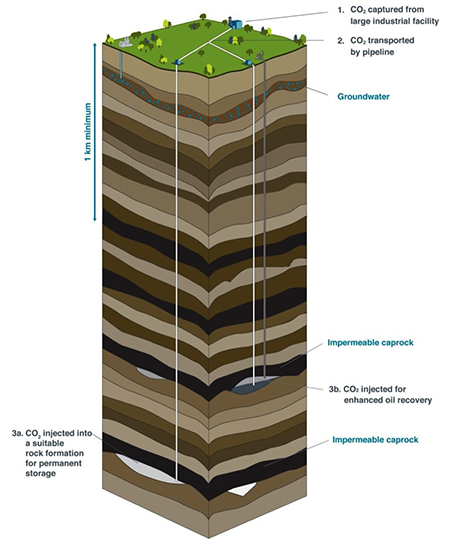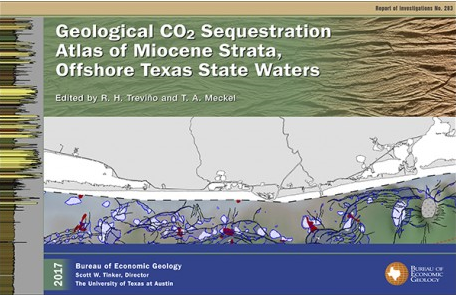Research Theme B
Evolution of Fluid Chemistry from Deep Reservoir to Near-surface: Implications for Geological Carbon Sequestration

Assessment of potential migration of fluid mixtures from depth to the near-surface is widely considered important for geologic storage projects. Information is needed to determine if and how a leakage signal might be detected, how upward migration of fluid mixtures might impact natural resources, and how upward migration could be quantified and remediated if needed. However, the complexity of the system is large and leakage processes generally have been oversimplified, removing considerations such as the rate at which leakage signal would evolve and changes in fluid composition during transport along a flow path. This research will probe the nature and importance of complex vertical migration processes for monitoring design.
Research under this theme anticipates:
- Field tests: Continue data collection at current GCCC CO2-EOR (e.g. Cranfield, Hastings, and West Ranch), natural analogs (e.g. Bravo dome), and controlled-release test sites (Brackenridge Field Laboratory, Devine test site). Seek additional opportunities for acquiring innovative and relevant data sets under a variety of field conditions. Includes leverage under CFSES.
- Laboratory experimental studies: Continue validating field observations with laboratory simulations, including using the current two-phase flow reaction apparatus adaptable to a wide range of geological media, gas phase injection and dissolved gas saturations. Seek opportunities to expand these studies as needed to solve problems.
- Numerical simulations: robust and efficient models will be used to interpret results from experimental and field-based studies and understand geochemical processes that effect the chemical evolution of fluid-rock mixtures from deep reservoir to near-surface.
- Combining these research techniques, GCCC will seek to develop innovative approaches for documenting non-detection or quantifying leakage from depth to the surface with an emphasis on cost-effective, fast, and accurate implementation. This topic links to topic D on monitoring commercialization.
- Study petroleum systems as an analog to long-term geologic storage. Use natural migration of hydrocarbons as an analog to understand the processes influencing gas chemistry along the migration pathway.



